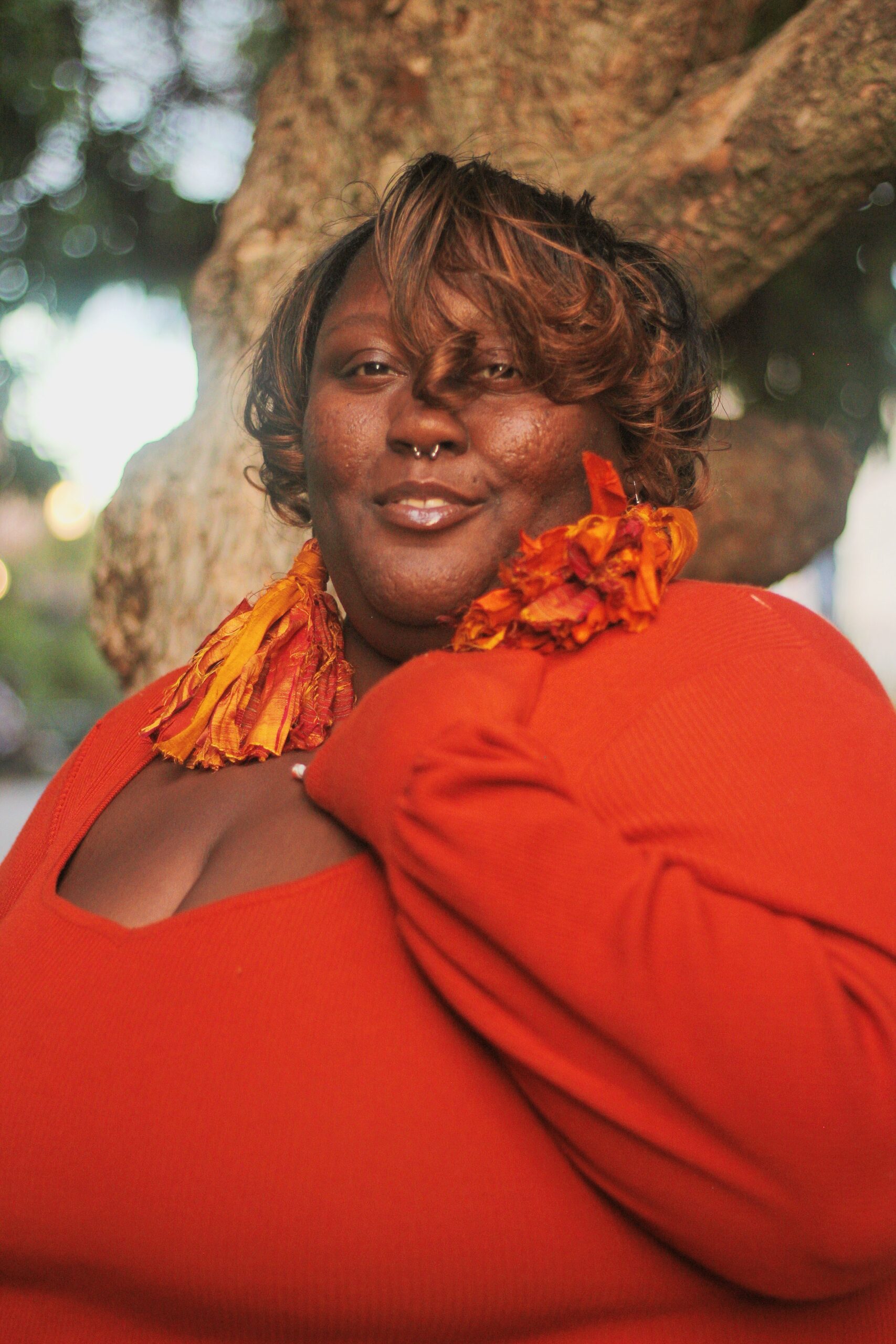Alanah Davis: Blackness, the Importance of Imagination, and Space for Something Holy

Last week I treated myself to a box orchestra seat to see Leslie Odom Jr. at the Baltimore Symphony Orchestra.
I struggled to find parking for a little while and spun around Mt. Vernon for at least 20 minutes before remembering that I paid for a parking space over at a church nearby on the Maryland Institute College of Art campus in relation to my role as assistant director of community arts.
It was only about a mile away from the symphony so I decided I would just walk.
It was dark and my imagination was welcoming thoughts about safety, and I even stretched before I started walking as if I would have to face some sort of two-hand combat on my way — thoughts most women think when walking alone, thoughts most Black women think when breathing.
Before I knew it, I was at the theater and — Thank God — I was unscathed, just a little out of breath. Note to self: I should walk more in 2022.
When I looked at the seating chart from my mobile device at home when I was scoping out tickets, I bought myself a seat in Row R (not the box) but pretty close and off to the left of the rounded stage.
But, after Leslie took the stage, his long red coat like the ones you’d traditionally see performers wear in the Macy’s Thanksgiving Day parade, Row R wasn’t close enough for my liking. So as the Tony Award-winning songster belted out his second of many Christmas tunes backed by conductor Jonathan Rush and the BSO, I sped to the box office to ask for a closer seat.
I paid a small fifteen-dollar upcharge and returned to a much more comfortable cushioned red velvet chair cascading just over the stage. I could see the details in the shoes conductor Rush wore, I could hear the resin falling off the strings of the instruments hitting the stage — and that made this splurge all the more worth it.
I snuggled into my upgraded seat just in time to hear Odom Jr. ask us audience members which ones of us didn’t celebrate Christmas. If I had to eyeball it, I’d say just about 15% of the audience clapped or waved a hand in the air to answer the singer’s question affirmatively. Though the question was about who didn’t celebrate, it identified the remaining silent-and-still portion of the audience as being those who did celebrate Christmas, maybe also believers in Christ?
Odom Jr. said to the audience at the nearly filled 2,443-seat symphony hall that he liked to leave room for something Holy in his life. The crowd cheered.
I did too. It made sense what he was saying. I could relate to leaving space for something Holy or something dedicated or consecrated to God or a religious purpose…something sacred.
While listening to the orchestra my mind wandered as it often does. I was the only person seated in Box A. There were, of course, people seated all around the theater all from different backgrounds and wide-ranging identities, but I zeroed in on the Black people and thought of what might have brought them to this point of culture, this point of appreciation for this season…this point in life. What a gift it was for each of us to still be breathing and reaping the benefit of a higher, cultured society.
Most people with brown skin were dressed to the nines or to a great or elaborate extent. Beautiful hues of red, silks, Christmas plaids, gold and green velvets, their heads held high with distinction, as was mine.
I almost wore heels that night (I’m glad I didn’t because of that aforementioned walk), but I’d just done so the day before for an office holiday party and the pads of my feet were still aching. I wore adidas sneakers and a green velvet dress of my own and as I sat perched in the box seat all alone, I imagined I belonged to a higher class in society. That there had been an armed guard just outside of my box there to protect me, that passersby would imagine to which royal family I belonged. That audience members looking up to where I sat would wonder what my prestigious occupation was. My brain was crowded with imagination and swelled with what-ifs surrounding my supreme power or dreamt-up authority.
Leslie Odom Jr. had made it to singing Ave Maria, which I had first heard covered by Stevie Wonder on a Christmas CD that my mother owned years ago. She didn’t have it anymore but I could still remember the Latin words with enough confidence to sing along quietly under my mask. The imagery for a world where I was far richer, delicate and poised still fired through the synapses of my brain and I imagined audience members would hear the faint tonality of the breathy singing coming from up under my mask and begin to beg of me to stand in duet with the headliner.
I was always as imaginative as I still am at the age of thirty.
As a girl I had imaginary friends and hypothetical situations in my small brain to abound. Many of those thoughts I would act out or tell people openly about.
Now I have two wildly imaginative children of my own — more reasons for my imagination to stay as acrobatic as it is, for situations like this.
My oldest daughter, who will be 10 in February, confronted me earlier this month to tell me that her closest friend didn’t believe in Santa.
When she told me, I cocked my head back and exclaimed, “WHAT?!” in disbelief as if I still believed in the Jolly Father Christmas myself, as if I hadn’t just bought her and her sister a vintage Nintendo 64 with my own money and no help from elves, as if her imagination was something worth her holding onto because this world won’t always be so gracious to afford her the opportunity to imagine herself outside of a reality that can be heavy with issues. Issues surrounding her blackness, her reproductive organs, her access to education because of her class and so many other socioeconomic, political and social issues that she’ll have to face now and forever, issues I won’t always be able to shield her from with good acting, hearty laughs and a healthy imagination.
If you’re reading, you might ask me why I’m protecting the image of Santa Claus for my daughters with so much fervor. And it’s really because, beyond their precious ages of 7 and almost 10, so much trouble waits at the fate of their feet. The further they walk into life the less room for imagination there seems to be. And depending on the things that happen to you, your occupation, and position in society, there’s even less room.
Maybe her close white friend and her family can afford to let go of whimsy early — or never approach it with any care at all. But as for me and my very Black house, whimsy, imagination, hypotheticals, and a little something Holy to hold onto (whether it be through the Christmas season or outside of it) will always be relevant.
No oppressed people should live without imagination, or the thought of what life could be like if it was not what it currently is.
Those kinds of thought patterns free people, free nations, break mental shackles and create imaginative future leaders. Little Black girls can’t afford to live without imagination. Shoot, growna** Black women can’t live without it either.
None of us should really.
As I approach a decade of motherhood this coming February, I have to give it up to something Holy for helping to keep me, my family and so many others through this year.
I hope everyone finds a little something Holy as we spill over into 2022.
Happy imagining.




 Creative Commons Attribution
Creative Commons Attribution